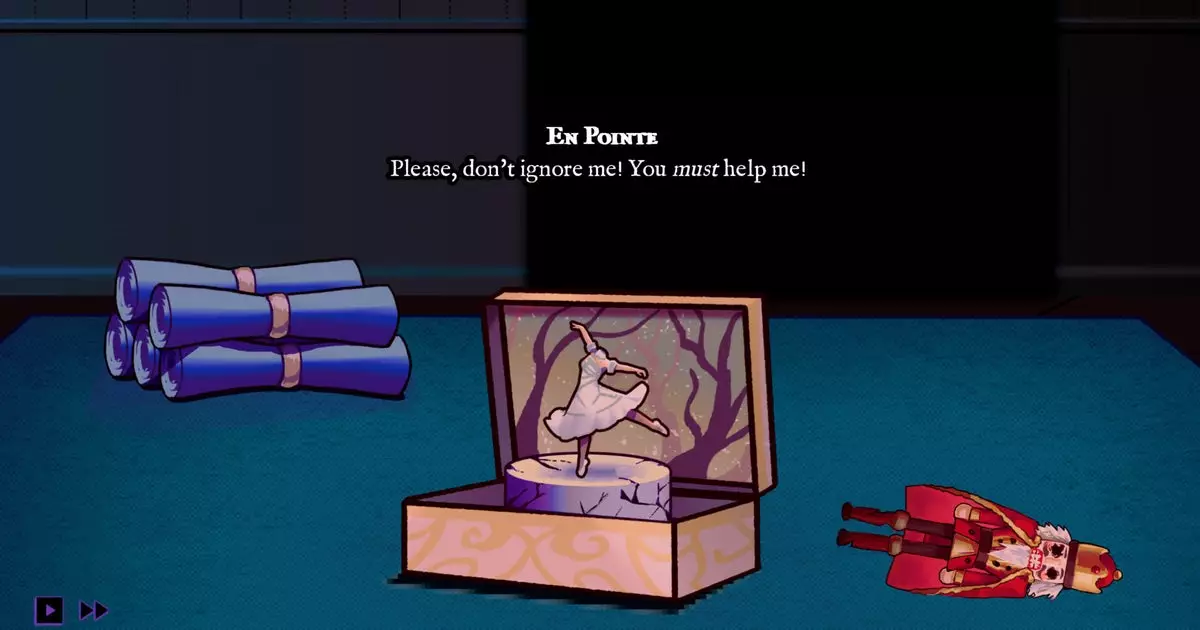When one first encounters Toy Box, the title might evoke images of a whimsical holiday game, reminiscent of childhood innocence and festive cheer. However, the initial impression soon shatters upon viewing promotional material, revealing a labyrinthine world that delves into macabre themes and unsettling narratives. As a free visual novel highly distinct from traditional Christmas fare, Toy Box possesses an unsettling brilliance that challenges the player’s sensibilities and expectations.
Set in a mysterious, shadowy workshop, players assume the role of a toy inspector for the Grand Toy Maker, an enigmatic figure veiled in secrecy. Tasked with the disassembly of five peculiar toys, players are required to decide their fates based on confusing, otherworldly instructions. This mechanic evokes an eerie sensation: while toys are traditionally symbols of joy and play, here they are presented as complex entities capable of communicating profoundly haunting tales. Choices made by the player lead to either salvaging these captivatingly grotesque creations or sending them—to their great despair—into the incinerator.
The primary allure of Toy Box lies in its captivating yet distressing storyline. While many may instinctively choose to preserve the toys, the unsettling reality is that these animated playthings are not hypothetical emblems of innocence. They speak of suffering, malice, and dark memories, presenting a striking contrast to their physical beings. A miniature ballerina, for example, despite her childlike exterior, engages in dialogues filled with despair, revealing a conflict that transcends mere child’s play.
The illustrations of blood, body horror, and existential dread found within the game are not just shock value; they drive toward something deeper. Developers DEADline Studios, a small POC and queer-owned enterprise, masterfully intertwine the themes of humanity’s darker aspects into the gameplay. Rather than exploit these themes, there’s a semblance of purpose to the horror, as players grapple with moral and ethical dilemmas. The ongoing assessment by the Grand Toy Maker forces players to wrestle with their choices, prompting reflection on deeper societal issues nestled within the fabric of human experience.
This fusion of choice and consequence challenges players to confront their values. The very act of dismantling a toy—once a symbol of happiness—shifts the player’s perspective on what it means to preserve or destroy. It’s not merely a mechanical decision; it becomes an ethical conundrum that lingers long after the game is turned off. Should one truly save these tortured toys, or does dismantling provide relief from their anguish? Each decision resonates, echoing within a player’s conscience, reflecting the complexities of moral choice in a world where the line between innocence and horror is taut.
The application of horror in Toy Box is reminiscent of other notable works in the genre, yet what sets it apart is the innovative method of storytelling through the act of deconstruction. It recalls the more serene yet compelling theme seen in titles like Hardspace: Shipbreaker, yet with a starkly different emotional palette. While the latter showcases a dystopian reality filled with hardship and servitude, the emotional weight borne by the toys in Toy Box connects more intimately with themes of trauma and agony. The notion that inanimate objects can encapsulate experiences of suffering reveals a sophisticated narrative structure that invites players to ponder broader implications of existence and empathy.
As the gaming landscape increasingly embraces bold narratives and unique storytelling techniques, Toy Box stands out as a commendable example of how horror can fuse with gameplay to evoke profound reflections on human nature. Developers like DEADline Studios are carving out spaces where unsettling themes flourish, inviting players to explore the depths of the human experience through the extraordinary vessel of toys. Ultimately, Toy Box not only blurs the line between joy and despair, but it also opens the door for future explorations into innovative modes of storytelling, proving that even the most innocent of surfaces can conceal layers of complexity beneath a facade of playfulness.


Leave a Reply